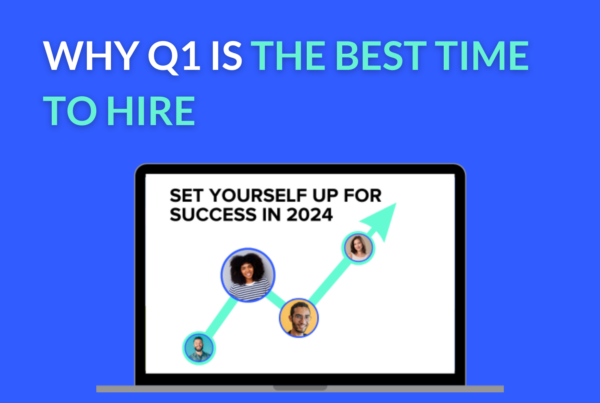Four things to consider when recruiting your DevOps Team
Having a good DevOps team is essential for software-powered organizations, allowing problems to be handled faster and more efficiently. A good DevOps team can be the factor that enables a business to go from good to great, outperforming their competition and getting ahead in the growth curve. The combination between Dev and Ops leads to a shorter system development life cycle. DevOps involves the adoption of the best practices, automation and tools, to allow better service for customers.
IDC predicts that the global DevOps software market will soar from $2.9 billion in 2017 to $6.6 billion by 2022. It is investments made by CTOs and CEOs, innovation in software, adoption of microservices-based architectures, and associated development methodologies that are driving change in the market.
So, given the importance of an effective DevOps team, what are the most important things to consider when recruiting for yours?
1. Know what you are recruiting for
Depending on your background, a DevOps role can be hard to fill due to the technical expertise needed. It’s vital that as the hiring manager, you know what skillset and experience is needed to make you DevOps team as successful as possible.
As specialist DevOps consultants we are in the prime position of being able to not only find a great candidate for the role you have, but also advise on whether a particular skillset or experience would be best for you and the business.
Having preliminary discussions in a consultative manner can help improve the understanding of what you need. A skills gap assessment will often involve a reflection on what is lacking in the current team, and what type of candidate would be able to solve these shortfalls.
2. Tailor your selection process
Once you have decided to introduce a candidate to the business, both parties must reflect upon what is important to them, to make the hire worthwhile and successful.
On top of the skills gap that the candidate needs to fill, the process must aim to not only assess their technical knowledge but also determine their personal suitability for the team. When constructing the selection process, you and your consultant should be on the same page as to the exact nature of the candidate that they are looking for. Make sure your multi-stage selection is thorough enough to cover all areas of a candidate profile. Of course, in this process it must be the responsibility of the candidate, as much as the client, to make sure whether the role is a right fit.

3. Retain existing talent
Recruitment is only the first step in building your successful DevOps team – once in, the engineers must then go on to build strong relationships with each other and create a sustainable and substantive workforce. We strive to provide the best talent, not only so we deliver on our promise to connect the best FinTech talent globally, but also to ensure these placements have a long term impact on the organization for years after the placement.
It costs, on average, £12,000 to replace someone who has left an SME. This can add up. Recruiting can be a time consuming and costly and so nailing the process on the first time around can save months of searching and advertising, each of which have their own financial implications on the company. If not done thoroughly and appropriately, recruitment processes can lead to a team losing efficiency and projects being delayed. Taking the time to speak with specialist consultants in the field now will save time and money in the future and will do wonders for any DevOps team, regardless of their current hiring situation.
4. Make the most of your consultant
Your consultant’s job, fundamentally, is to place the best candidates with your business but they can offer much more. Your consultant will be on hand to troubleshoot any issues with the hire well beyond their offer date. Successful and long-term placements are great for the candidate, the client, and the consultant, and the obvious hope is that we can reproduce this when you need to grow your team. Talking to top DevOps talent every day provided insights into hiring and onboarding trends and give us a unique insight into how best to recruit for your business.
For both candidates and clients, it is always wise when opportunities seem scarce to remain in open conversation with your DevOps recruitment consultants. Understanding what is going on in the market, even on a loose, informal basis, can help diversify and improve teams by keeping them updated on the competitive and rapidly changing market that is DevOps recruitment.
Get in Touch
Katie Farquharson is part of the DevOps & Engineering team at Storm2. If you’d like to discuss your recruitment needs, please get in touch or read more about our DevOps function here.







